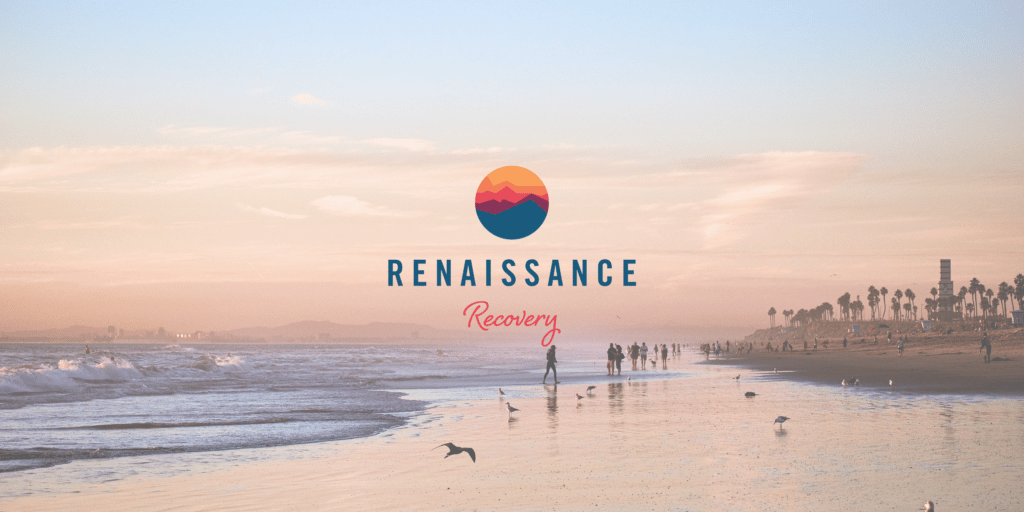Fighting addiction is something few people consider when they first start abusing drinking alcohol, using prescription medications, or experimenting with illicit drugs. But, with the help of family and a professional treatment program like a California rehab, the process is easier than you think.
Now, the difficulties people encounter when fighting addictions are well-publicized, but many people feel addiction is a myth, and that they can quit any time they choose.
Need help getting addiction treatment?
If you go on to develop alcohol use disorder or substance use disorder, though, you’ll soon discover that quitting is more challenging than you might have imagined.
While some people will endure the negative consequences of addiction for years before committing to change and recovery, others will more rapidly tire of the chaos addiction brings into their lives.
Sooner or later, though, most people abusing substances will decide enough is enough. Having decided that you no longer wish to continue abusing substances is one thing, but you’ll first need to decide whether you’re pursuing complete abstinence or simply looking to moderate your addictive behaviors.
If you are using any addictive substances to the point of dependence and addiction, complete abstinence is the most effective route to recovery. If this is not immediately practical, though, any reduction in substance use is better than continuing with abusive habits.
By becoming crystal clear on your goal, you’ll have the strongest chance of fighting back against the scourge of addiction to drink or drugs.
Before we give you some pointers on how to fight drug addiction – both fighting drug addiction in general and fighting marijuana addiction specifically – we’ll give you some easily actionable ways to fight alcohol addiction.
Ways to Fight Alcohol Addiction
NSDUH data shows that of the 20 million people in the United States with substance use disorder, 71.1% have alcohol use disorder.
If you’re one of the 14.5 million people addicted to alcohol, how do you find out in the first place that you have alcohol use disorder?
There are many online quizzes you can take to discover whether you may have alcoholism.
Where alcoholism is a non-clinical descriptor, alcohol use disorder is based on specific criteria laid down in DSM-5, the fifth edition of APA’s Diagnostic and Statistical Manual of Mental Health Disorders.
Based on your responses to the eleven questions set out in DSM-5, you can be diagnosed with mild, moderate, or severe alcohol use disorder.
Once you have established the nature of the problem you have with alcohol abuse, you’ll be better placed to formulate a plan of attack so you can find the best way to fight addiction to alcohol.
Just like when trying to break any addictive behavior, whether drug addiction or a behavioral addiction like shopping or internet use, every situation is different. What works effectively to stop your friend from abusing alcohol may be no use for you.
Perhaps you’re only a casual drinker, for instance. You might find it hard to resist peer pressure, especially if you look at others and question why you can’t drink in moderation just as easily. Your friend may not need any self-help tools to drink in moderation, but that doesn’t mean you can do the same.
Alternatively, you may have severe alcohol use disorder but convince yourself you could easily quit drinking with the help of 12-step groups like AA. In reality, residential rehab would be the best fit.
Fortunately, most cases of alcohol use disorder can be treated with outpatient programs, so you don’t necessarily need to pack your bags or head off to rehab for a month or more. An IOP (intensive outpatient program) or a PHP (partial hospitalization program) might provide all the structure you need to kickstart your recovery.
While quitting cold turkey remains an enduring myth, this is the riskiest way to stop drinking. If you feel any kind of withdrawal symptoms or physical cravings for alcohol when you quit drinking, you should engage with a medical detox rather than going it alone.
Not only will you have access to FDA-approved medications to reduce the intensity of withdrawal symptoms and cravings, but you’ll also have qualified medical assistance on-demand in the event of any complications.
If you find you are not addicted to alcohol, you may find you can taper off your intake and detox alone at home. Speak with your healthcare provider if you intend to do this, and avoid this approach if you are dependent on alcohol or addicted to alcohol. In these cases, fighting addiction to alcohol will be easier with the help of a structured treatment program.
Many people at varying stages of recovery find immense support and value from attending meetings of 12-step groups like Alcoholics Anonymous. You can draw from the experience of others undergoing broadly similar experiences, and you can benefit from accountability when attending these groups.
The most important part of learning how to conquer an addiction to alcohol starts with admitting that you have a problem. With denial removed from the equation, you’ll be ready to get down to the business of recovery.

How to Fight Drug Addiction
Learning how to battle an addiction to drugs is no different from grappling with alcohol use disorder in that nothing happens without the admission that a problem exists and the desire to implement change. This is enough to start a small seed that can germinate into full-blown recovery if followed up with the right actions.
At this early stage, it’s commonplace to feel uncertain. Are you really ready for recovery? Are you prepared to give up your drug of choice for good?
Now, it’s natural to have conflicted feelings when it comes to giving up your drug of choice, even if you are aware your use of the drug is causing problems in your life.
Take this opportunity to remind yourself of why you want to change. Consider any previous attempts you have made at recovery. If these attempts were unsuccessful, what stopped you from achieving your goal?
You should set yourself some goals regarding drug use that are specific and measurable. Examples could be a quit date, or limits on your drug use if you are not in a position to abruptly discontinue use.
Remove all reminders of your addiction from your home, including all drug paraphernalia.
Voice your intentions to commit to recovery to family and close friends. Ask for their support as you commit to this sweeping change.
When you commit to sobriety, you’ll need to change many things in your life, including:
- How you deal with stressors
- What you do with your free time
- The people you choose to socialize with
- How you think about yourself
- OTC and prescription medications
As soon as you have committed to the idea of recovery, you should start exploring treatment options to maximize your chance of recovery without relapse.
The first stage of conquering any drug addiction involves detox. With your body purged of toxins and withdrawal symptoms managed, you’ll be ready to engage with treatment properly.
Here are the main treatment options at your disposal:
- Residential rehab: Inpatient or residential treatment involves staying at a treatment center for 30 to 90 days, while undergoing intensive addiction treatment.
- Outpatient rehab: With outpatient rehab, you’ll remain at home while attending counseling and therapy sessions for an hour or so each day.
- IOPs and PHPs: Intensive outpatient programs and partial hospitalization programs are both more intensive than traditional outpatient treatment. With an IOP, you’ll attend sessions for at least 9 hours weekly, while with a PHP you get full-time outpatient treatment.
- Sober living homes: If you need to step down from residential rehab, a sober living home can work well as an intermediate option before returning home. Alternatively, you may choose to engage with outpatient treatment while basing yourself in a sober living community if you have an unsupportive home environment, or if people in your home abuse substances.
Regardless of the method of delivery, addiction treatment is typically composed of the following:
- Medication-assisted treatment
- Individual counseling
- Group counseling
- Psychotherapy like CBT and DBT
- Holistic therapies
- Vocational development
If you have a co-occurring mental health disorder, you would benefit from dual diagnosis treatment, addressing both issues head-on and simultaneously.
Aftercare and long-term follow-up can help you maintain sobriety once you complete a course of treatment for drug addiction.
Fighting Marijuana Addiction
Marijuana is the most widely used illicit substance in the United States. With drug laws changing nationwide, and more states decriminalizing marijuana, for both medical and recreational use, it remains to see if more people will develop marijuana use disorder as a result of wider availability and the development of a white market for the drug.
NIDA (the National Institute on Drug Abuse) considers marijuana an addictive drug. Cannabis use disorder or marijuana use disorder occurs when marijuana use is compulsive and problematic. Some data suggests that up to 30% of those who use marijuana will eventually develop marijuana use disorder.
Physical dependence is a common feature of marijuana addiction, as both your brain and body adapt to persistent marijuana use.
Withdrawal symptoms are another core element of a marijuana use disorder, and this is one of the more challenging aspects of quitting weed. Fortunately, the intensity of these withdrawal symptoms peaks after just three days of detoxification.
While it is possible to stop smoking weed on your own, you may benefit from the structure and support of a marijuana addiction treatment program. This can be an outpatient treatment program that fits in with your existing schedule. Not only is this form of treatment cheaper than residential rehab, but it’s also much more flexible, and covered by most health insurance policies.
If you want to try quitting marijuana at home, consider the following pointers:
- Make a clear plan with fixed, measurable goals
- Discard all marijuana paraphernalia like pipes, bongs, bowls, tobacco, and vapes
- Identify the people, places, and things that trigger you to use marijuana. Formulate healthier coping strategies to use instead
- Build a robust support network
- Find a healthy replacement for marijuana like yoga, weight training, or running
- Seek treatment if you can’t quit alone

Fighting Addiction with Renaissance Recovery
Here at Renaissance Recovery Center’s Orange County drug rehab, we have a wide range of evidence-based outpatient treatment programs for all type of addiction.
You’ll have access to medication-assisted treatment, as well as psychotherapies, holistic therapies, and counseling to help you address the root cause of your addiction.
We’ll help you build a firm foundation for sustained recovery whatever the scope and severity of your addiction, and we’ll also ensure you have the right aftercare in place. We understand that recovery is a lifelong journey, and we’re here to help you every step of the way. All you need to do is reach out to admissions today at 866.330.9449.



